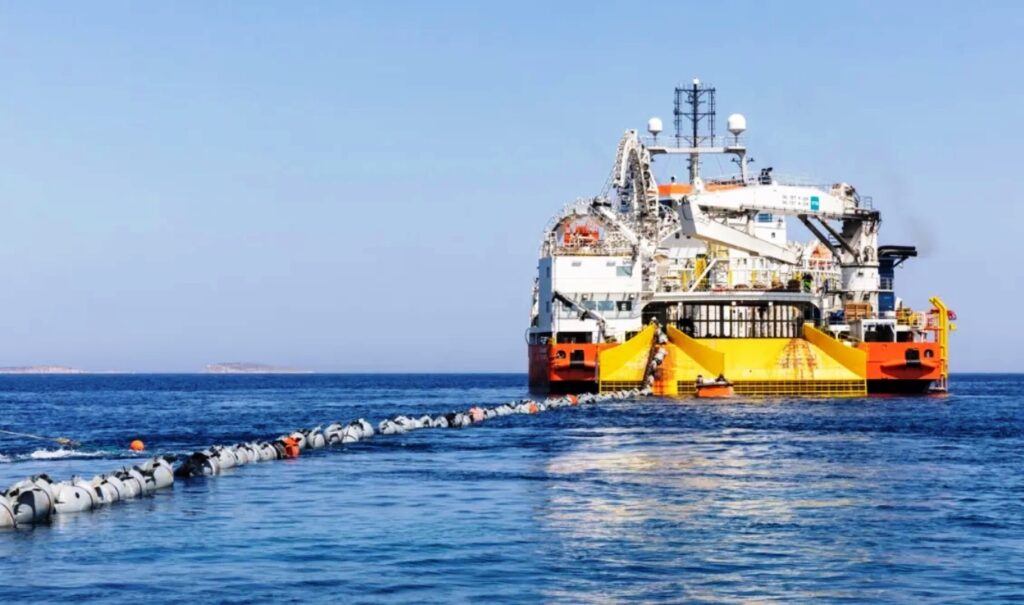The President of the Republic of Cyprus, Nikos Christodoulides, yesterday spoke about investigating potential criminal offenses related to the implementation of the electrical interconnection between Crete-Cyprus-Israel Great Sea Interconnector (GSI), making the project’s future even more uncertain. “This afternoon I was informed that the Legal Service was notified by the European Public Prosecutor’s Office that after various complaints made some time ago and have been investigated, it decided to open an investigation case for possible criminal offenses in relation to this specific project,” he said characteristically.
The project’s implementation had been questioned earlier by Cyprus’ Finance Minister, Makis Keravnos, who characterized it as unsustainable. These statements appear to be shared by Mr. Christodoulides, who argued that the Republic of Cyprus’ position on the cable issue is “clear” and “unified.” As he said: “The project is of strategic importance. Its viability depends on the implementation of commitments undertaken by the implementing body, which is ADMIE, and we await the implementation of these specific commitments.”
Cypriot diplomatic sources tell parapolitika.gr about the cable: Keravnos’ positions reflect Nicosia’s stance
Diplomatic sources from the Republic of Cyprus, speaking to parapolitika.gr, argued that the positions expressed by Mr. Keravnos in his interview fully reflect the positions of the Cypriot Government. With this stance, Nicosia appears to be seeking to put the GSI pipeline “on ice.” If this happens, it will give another dimension to geopolitical developments in the region, blunting a significant reason for conflict with neighboring Turkey.
However, the Republic of Cyprus’ stance finds opposition from the Greek government. From Greece’s Ministry of Foreign Affairs, spokesperson Lana Zochios, in briefing diplomatic correspondents yesterday, stated that it is a project of geostrategic importance that has secured European support, declaring Athens’ intention to continue it as planned.
She even invoked the statements of European Commission spokesperson Anna Kaisa that the implementation of GSI has received European funding and is a priority not only for the EU, but also for the broader geographical region. Ms. Kaisa, referring to the “delays” and “problems,” argued that “it is in our interest to know what is happening, given that we have invested in this project and there is a political commitment.”
To date, the EU has approved a grant of 657 million euros through the Connecting Europe Facility mechanism and an additional 100 million euros have been provided from the Recovery and Resilience Facility (RRF).
Cyprus’ objections to GSI
It should be noted that this is not the first time the Republic of Cyprus has expressed its objections to the GSI project. Cyprus’ Energy Regulatory Authority (CERA) until August refused to approve the allocation by ADMIE of 25 million euros to Cypriot citizens, raising reservations about the geopolitical risks posed by implementing the electrical interconnection. Four teleconferences from the EU were required to convince Nicosia to continue implementing the project. And when CERA finally made the decision, it provoked a reaction from Finance Minister Makis Keravnos, who had stated that “I haven’t seen CERA’s decision, but it seems unreasonable to me for taxpayers to pay 25 million for a project that is frozen.”




